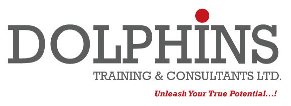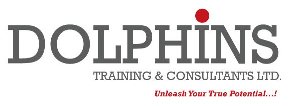
We Push the Human Race Forward... So Do You...
►Discover more Amazing programs from below...
►Find Your Greatness....
►Unleash Your True Potential....!


This course covers Records Management from the perspective of Records Managers, Administrators and all staff involved on records and data development, maintenance and management.
The highly developed skills will enable you to manage your organization’s records through their complete lifecycle as well as understanding how to setup file plans and security.
You will gain an understanding of the best practices applicable to the use of the Records Management and ICT.
Development Issues and Weak Records Systems and management
Through our consultancy projects, we have identified a number of development issues arising from the loss of control of records.
For instance:
• Freedom of Information/ Right to Information and Open Data initiatives are only as good as the quality of the information to which they provide access. The right of access to information is of little use if reliable records are not created or cannot be found when needed.
• Weak records systems can create opportunities for fraud, corrupt procurement, misuse of public funds and money laundering.
• Inadequate personnel records systems hinder efficient public service administration, staff deployment and long-term staff development.They distort payrolls and mask the existence of ghost workers and the retention of staff past statutory retirement age.
• Without up-to-date and easily accessible patient records, health professionals cannot understand medical histories or plan treatment; inappropriate drugs and procedures may be prescribed. Data for medical research and statistical reporting is not available.
• The loss of control of court records causes delays in processing cases, provides scope for corruption and undermines the rule of law.
• Collapsed paper records systems can obscure the fact that reliable information is not available; they may need to be reconstructed as part of the transition to electronic systems. IT systems cannot replace data that is missing or unreliable in paper systems.
• The inability to access reliable land titles creates insecurity and stifles development potential; without secure land tenure, property cannot be used as collateral for loans and development. Poor land records open the way for dubious claims and lead to political instability.
Duration
3 days.
Objectives
At the end of this course you will:
• Understand the concepts behind records management
• Be able to create a file plan
• Know how to map business retention requirements into disposal schedules
• Be able to setup a security regime to meet your security policy
• Know how to setup vital records and references
• Understand auditing and be able to control records throughout their lifecycle including; creation, use, retention, transfer and final disposition
Prerequisites
Delegates must have a good knowledge of how their organization will manage their records. It is highly desirable that delegates have a basic familiarization with the discipline of records management, such as classification structures and retention schedules.
Outline
Introduction to Records Management
• What is Records Management
• Why is it Important
• Key objectives of a Records Management System
• What are Records
• What is Retention Schedule
• Understanding the Retention Periods
• What does this mean to you and your organization
• General Guidelines
• Dos and Don’ts
• What happens now
• How does it differ from Document Management
• Records Management for Compliance
• Setting up or Upgrading you Records Management Systems
Setting Up a File Plan
• What is a File Plan
• Example File Plans
• Series, Categories and Folders
• Creating a File Plan
Filing Records
• Filing and declaring records
• Record types
Users and Security
• Security overview
• Capabilities Roles
• Security inheritance in the File Plan
• Supplementary Markings
Disposition Schedules
• What is a Disposition Schedule
• Disposition steps
• Cutoff, retain, transfer and destruction
• Creating Disposition Schedules
Filing Emails and Physical Records
• Filing emails
• Email splitting for attachments
• Filing physical records
Vital Records and References
• What are Vital Records
• Setting up vital records for review
• Creating and managing references
• Using references for disposition actions
Auditing
• What is auditing
• What the audit contains and where it lives
• Administrative functions for auditing
• Viewing and searching the audit
Understanding the Context of Electronic Records Management
- Planning and Managing an Electronic Records Management Programme
- Managing the Creation, Use and Disposal of Electronic Records
- Preserving Electronic Records
- Managing Personnel Records in an Electronic Environment
- Integrating Records Management in ICT Systems: Good Practice Indicators
Route Maps
- Implementing Electronic Records Management
- Designing a Records Management Improvement Programme
- Integrating Records Management in the Systems Development Life Cycle
In Addition;
Management of Public Sector Records
The MPSR Programme covers all phases of the records lifecycle, or continuum of records management, as well as the application of these principles and practices to financial, human resource and hospital and court records. The programme comprises about 4000 pages of training material, including 18 teaching/study training modules, case studies, good practice manuals and associated educational materials. While the materials address public sector record-keeping issues, they also are useful for records management in the private sector
1 The Management of Public Sector Records: Principles and Context
2 Organising and Controlling Current Records
3 Building Records Appraisal Systems
4 Managing Records in Records Centres
5 Managing Archives
6 Preserving Records
7 Emergency Planning for Records and Archives Services
8 Developing the Infrastructure for Records and Archives Services
9 Managing Resources for Records and Archives Services
10 Strategic Planning for Records and Archives Services
11 Analysing Business Systems
12 Understanding Computer Systems: An Overview for Records and Archives Staff
13 Automating Records Services
14 Managing Electronic Records
15 Managing Financial Records
16 Managing Hospital Records
17 Managing Legal Records
18 Managing Personnel Records
19 Managing Current Records: A Procedures Manual
20 Restructuring Current Records Systems: A Procedures Manual
21 Managing Records Centres: A Procedures Manual
22 Managing Archives: A Procedures Manual
23 Planning for Emergencies: A Procedures Manual
24 Model Records and Archives Law
25 Model Scheme of Service
- Case Studies Volume 1
- Case Studies Volume 2
- Case Studies Volume 3
Reserve your slot(s) for upcoming program today from Here..►
<
Create your profile here with ease and showcase yourself to large number of potential recruiters/employers/business owners /dept heads all waiting to view you Today....Click Here
www.special-employee.com


.jpg)
.jpg)
.jpg)
.jpg)

.gif)


.jpg)
.jpg)
.jpg)


.jpg)